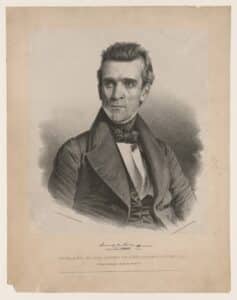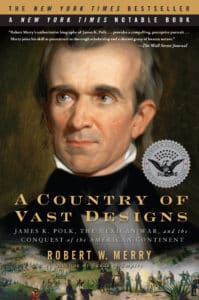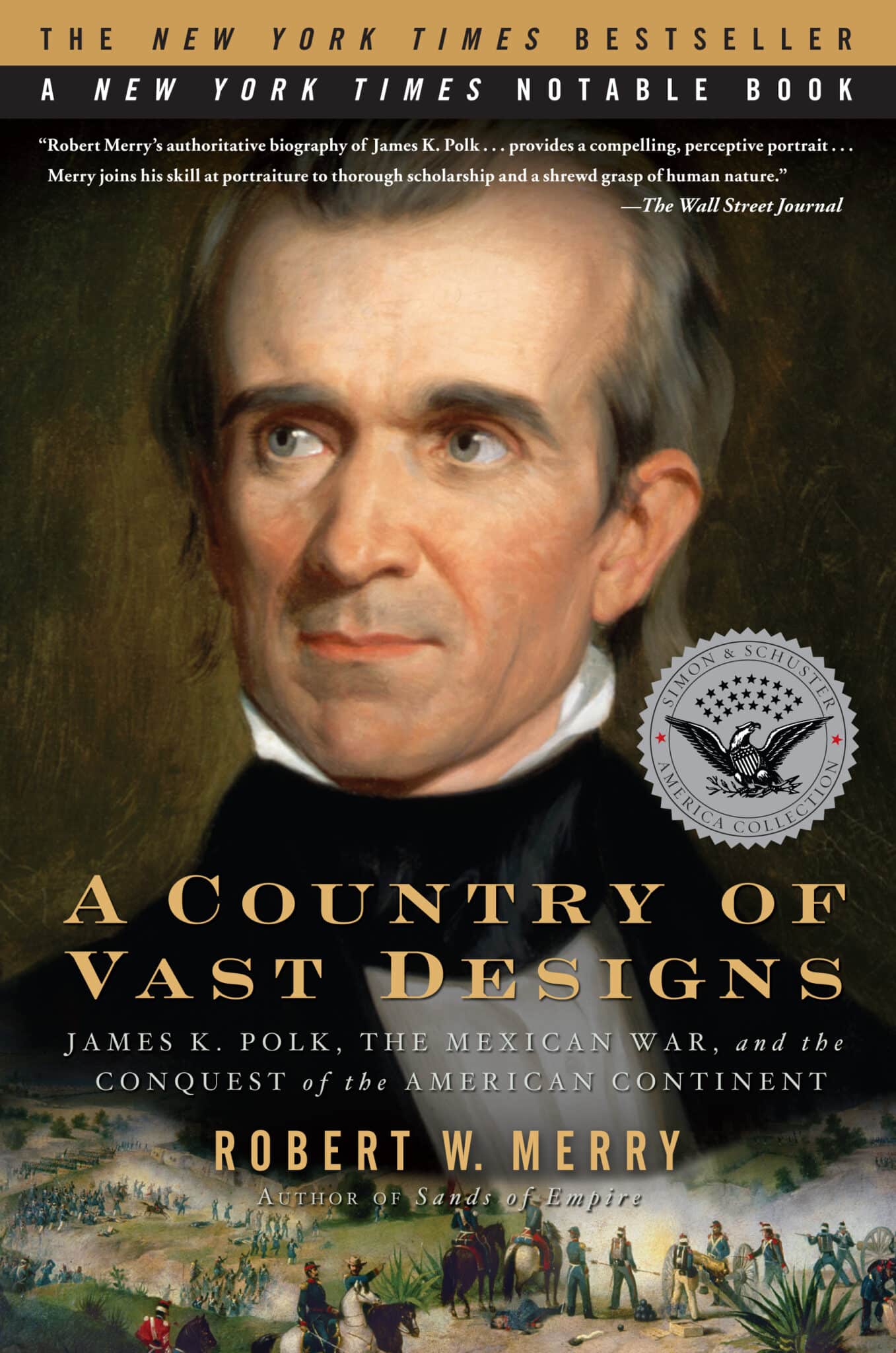Josh Reviews: A Country of Vast Designs: James K. Polk, The Mexican War, and the Conquest of the American Continent By Robert Merry
 A commanding biography of Polk, Merry has written a competent and complete story of Polk’s life, especially in the lead-up to and during his presidency.
A commanding biography of Polk, Merry has written a competent and complete story of Polk’s life, especially in the lead-up to and during his presidency.

Robert Merry is a journalist rather than a historian, and has worked for a variety of publications over his long career. This biography is recent, from 2009, and is one of five books that Merry has written. Polk has received maybe a little more attention than some of the presidents around him from biographers, and has several fairly recent books that cover his life and presidency. This one is reasonably scholarly, but incredibly easy to read.
Often considered ‘the last good president before the civil war’, was a man not expected to become president. But with the issue of slavery splitting the nation and the oversized personalities of many of the leading politicians of the era (most of whom were never fated to reach the presidency) Polk became the compromise candidate for the Democrats. (This is an era where president after president was a “compromise” as more prominent leaders attracted too much resistance). Most interesting, and so well displayed here, are the maneuverings at the nomination convention that led to Polk’s ascendancy. Polk was happy to be Van Buren’s VP, but after Van Buren disappointed Jackson, it was Polk who became the anointed choice of Old Hickory. With brilliant political acumen and able lieutenants, Polk gained control of the Tennessee delegation and broke the stalemate; ballot after ballot unable to pick between Van Buren, Cass, and a slew of other choices. Polk wasn’t even considered until late in the nomination process, and shortly he became the nominee – one derided as unknown and easily beatable by Henry Clay.

But Polk won, if by a small margin, and went on to aggressively pursue his agenda, becoming notable for his ability to work through congress and diplomacy to reach his goals. Still, despite being ‘the last good president’ before the war, Polk was not at all without his flaws. Despite being stubborn when it came to his goals, he allowed James Buchanan to undermine many of his more minor goals, and Buchanan’s presidential ambitions and betrayals were ignored because of Polk’s inability to stand up to his wayward secretary of state.
Merry gives us a vivid picture of the man, his successes (which were many) his weaknesses (which were many) and of the personality of someone who kept his nose to the grindstone even if he did succeed, allowing himself no time for relaxation or congratulations. Polk wore himself out in the presidency, and for it he died after only a few months in retirement. As Merry so ably recounts, though not without his critics and failures, Polk left a legacy that included the entirety of the Western United States. Polk served in a pivotal time in American history, and was the last president to succeed in spite of the growing sectional differences. In fact, Polk, though he secured for future generations the familiar geography of the lower 48, also left a legacy that would lead inexorably to the civil war.
This book is an excellent choice as a biography of Polk, for an understanding of the Mexican War, and as a history book in understanding US policy in manifest destiny and the sectional issues that would lead to the civil war. If you are looking for a good overview of this period, oft-neglected, between Jackson and Lincoln, this is a good place to start.



